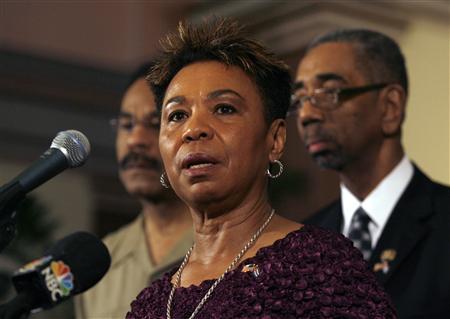Cuba: U.S. Embargo to End?
The Fifth Summit of the Americas is coming up next week, on April 17-19 in Trinidad-Tobago. The Summit's theme is “Securing Our Citizens’ Future by Promoting Human Prosperity, Energy Security and Environmental Sustainability.” It will be interesting to watch what the Obama administration has planned for the Summit regarding Cuba.
As readers may recall, last February the Lugar Report concluded that "progress could be attained by replacing conditionality with sequenced engagement, beginning with narrow areas of consensus that develop trust," and recommended changing US policy towards Cuba. Following the report, in March the omnibus spending bill changed travel restrictions on American citizens with family in Cuba to once a year, and last week the Wall Street Journal reported that President Obama plans to lift U.S. restrictions on Cuba, allowing Cuban-Americans to visit families there as often as they like and to send them unlimited funds.

This week the Congressional Black Caucus visited Cuba and reportedly met with Raul and Fidel Castro, who they lavishly praised. As with the Lugar delegation, members of the CBC did not meet any dissidents or any members of Cuba's pro-democracy movement. However, CBC recommended that the embargo be lifted.
Following the CBC's return, CNN released poll results stating that two-thirds of Americans surveyed think the U.S. should lift its travel ban and 71 percent of those polled said that the U.S. should reestablish diplomatic relations with Cuba.
On Thursday the Cuban American National Foundation released a report advocating change in the US's relations with Cuba, a drastic change from their prior hardline stance. The
Since the end of the Cold War our policy toward Cuba has remained static, reactive and focused on responding to developments following the demise of Fidel Castro. That policy, in our opinion, does not advance or promote the best interests of the United States or of the Cuban people; it relegates the U.S.’s role to that of passive observer rather than active supporter of the process of democratization for one of our closest hemispheric neighbors.The report also stresses the input of the Cuban people and the fostering of a Cuban civic society towards the aim of a successful transition to democracy.The recommendations listed herein chart a new direction for U.S.-Cuba policy, one that is guided by a deep understanding of the Cuban people, the impact of five decades of totalitarian rule, and a firm belief that the tides of change are swept in by the grass roots efforts of common people who have acquired confidence in their abilities and feel empowered in their responsibilities. Our recommendations are a break from the past because they seek to adapt to the realities of the present, which require a measured and incremental path that allows for adjustments along the way based on empirical evidence and evolving dynamics on the ground in Cuba.
Clearly, American attitudes towards relations with Cuba have changed.
In the island, however, the European Union's decision last year to lift sanctions against Cuba,
Cuban dissidents also vehemently opposed the lifting of the sanctions, believing that this action would “punish” the Cuban people and allow Havana to continue violating human rights. According to the leaders of the dissident group Agenda for Transition, any action taken by the EU to normalize relations with Cuba would be understood by Cuban authorities as affording legitimacy to the government’s recent actions and would “[punish] those who fight for democracy.”What is in store for the Summit of the Americas? Jeffrey Davidow, the U.S. official heading preparations, stressed that Pres. Obama seeks a "new beginning" with Latin American countries, focusing on the economic crisis, energy, and security threats during the Summit.
While stating that it would be counterproductive for the summit to focus on Cuba, Davidow said that Obama may announce the easing of travel restrictions and remittances. How will that be different from the April 4 announcement remains to be seen.



